Some Drosophila species have cryptic sex-ratio drive systems. Here, the authors show rapid expansion of a driver gene family, Distorter on the X, in three closely related Drosophila species on the X chromosome and suppressors on the autosomes.
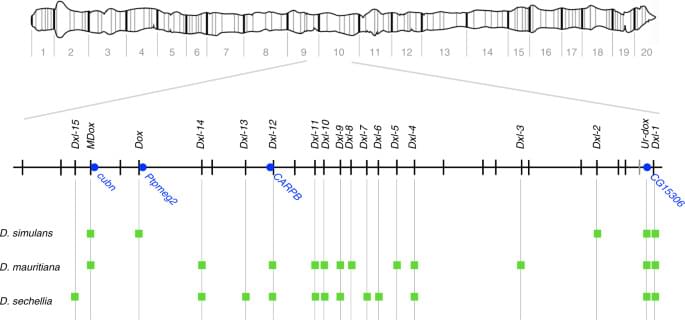

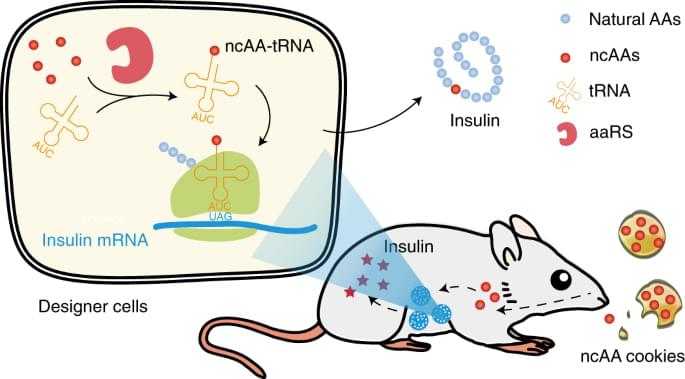
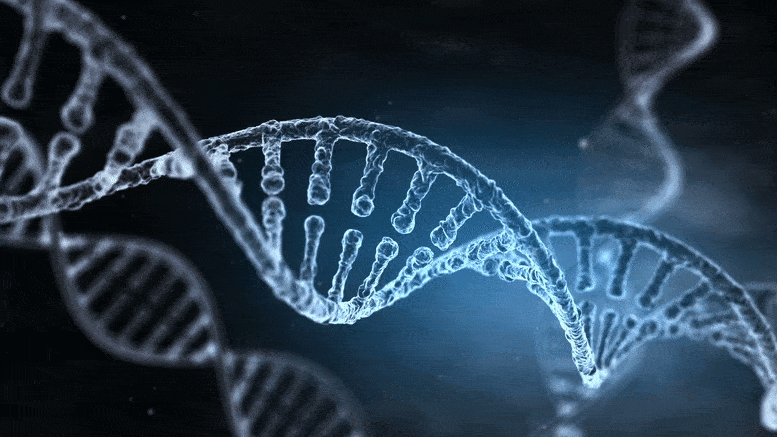
In an unprecedented atlas, researchers begin to map how genes are turned on or off in different cells, a step toward better understanding the connections between genetics and disease.
Researchers at University of California San Diego have produced a single-cell chromatin atlas for the human genome. Chromatin is a complex of DNA
DNA, or deoxyribonucleic acid, is a molecule composed of two long strands of nucleotides that coil around each other to form a double helix. It is the hereditary material in humans and almost all other organisms that carries genetic instructions for development, functioning, growth, and reproduction. Nearly every cell in a person’s body has the same DNA. Most DNA is located in the cell nucleus (where it is called nuclear DNA), but a small amount of DNA can also be found in the mitochondria (where it is called mitochondrial DNA or mtDNA).

In one of the mysteries of mammalian development, every cell in the early female embryo shuts down one of its two copies of the X chromosome, leaving just one functional. For years, the mechanics behind this X chromosome inactivation have been murky, but scientists from the Eli and Edythe Broad Center of Regenerative Medicine and Stem Cell Research at UCLA have now taken a major step forward in understanding the process.
Their findings, based on research on mouse stem cells, upend previous assumptions about how X inactivation is initiated in female embryos and could lead to new ways to treat some genetic disorders, as well as a better understanding of how genes on other chromosomes are silenced.
“X inactivation is one of the most fundamentally important processes in development, and I think this study is a slam dunk in finally understanding it,” said Kathrin Plath, a professor of biological chemistry and senior author of the paper, published in the journal Cell.
One-minute-long excerpt of the intervention of Professor David Sinclair during an event organized by the SALT Fund, that took place in October.
In this excerpt, Professor Sinclair talks about the work done in his Lab at Harvard University on partial cellular reprogramming and rejuvenation.
The panel counted with the participation of three antiaging and longevity experts:
* Dr. David Sinclair, Professor of Genetics, Harvard Medical School.
* Dr. Eric Verdin, Chief Executive Officer & President, Buck Institute for Research on Aging.
* Dr. Jennifer Garrison, Assistant Professor, Buck Institute for Research on Aging.
The moderator was Dr. Dina Radenkovic, Partner, The SALT Fund.
In the description of the video is the link to the full event.
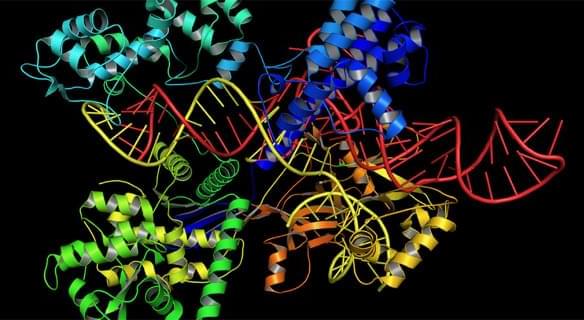
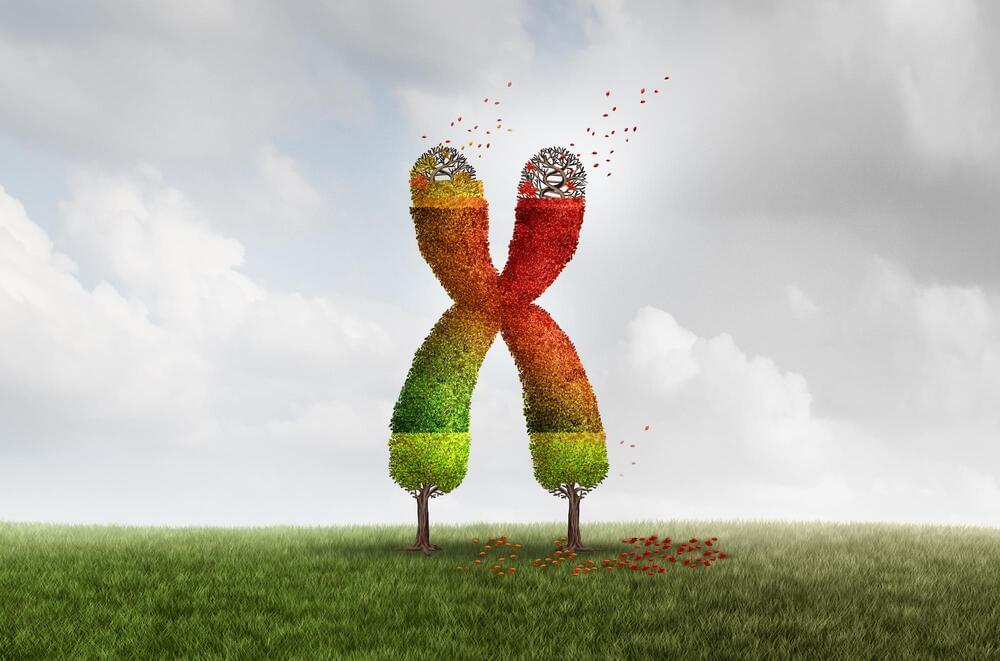
Aging affects everybody, so it’s easy to understand why so much scientific attention is focused on studying it. Scientists in Canada now claim to have found that telomeres play a different role in cellular aging than previously thought.
One of the main points of interest in anti-aging biology are what’s known as telomeres. These are sections of “junk” DNA that form caps on the ends of chromosomes, protecting important genetic information from damage when a cell divides. But a piece of the telomere is eroded away with each cell division, and when it gets too short the cell stops dividing entirely, entering a dormant state known as senescence. The build-up of these senescent cells contributes to a range of symptoms we associate with aging, such as frailty and age-related diseases.
The implication of this model is that telomeres take on a pre-emptive protection role – they signal to cells to stop dividing as soon as one telomere wears out. But there is evidence to suggest that cell division can continue with as many as five dysfunctional telomeres.
The problem? Our bodies aren’t big fans of foreign substances—particularly ones that trigger an undesirable immune response. What’s more, these delivery systems aren’t great with biological zip codes, often swarming the entire body instead of focusing on the treatment area. These “delivery problems” are half the battle for effective genetic medicine with few side effects.
“The biomedical community has been developing powerful molecular therapeutics, but delivering them to cells in a precise and efficient way is challenging,” said Zhang at the Broad Institute, the McGovern Institute, and MIT.
Enter SEND. The new delivery platform, described in Science, dazzles with its sheer ingenuity. Rather than relying on foreign carriers, SEND (selective e ndogenous e n capsidation for cellular delivery) commandeers human proteins to make delivery vehicles that shuttle in new genetic elements. In a series of tests, the team embedded RNA cargo and CRISPR components inside cultured cells in a dish. The cells, acting as packing factories, used human proteins to encapsulate the genetic material, forming tiny balloon-like vessels that can be collected as a treatment.
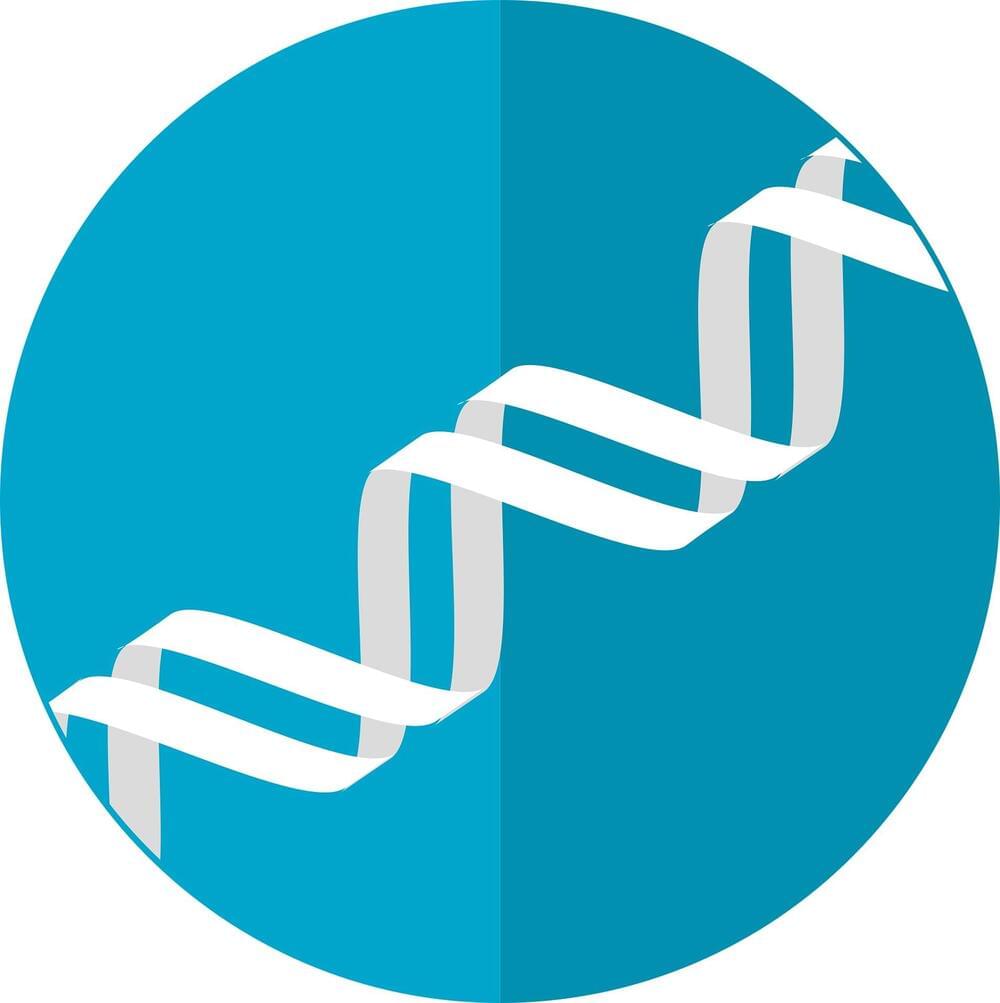
Yekaterina “Kate” Shulgina was a first year student in the Graduate School of Arts and Sciences, looking for a short computational biology project so she could check the requirement off her program in systems biology. She wondered how genetic code, once thought to be universal, could evolve and change.
That was 2016 and today Shulgina has come out the other end of that short-term project with a way to decipher this genetic mystery. She describes it in a new paper in the journal eLife with Harvard biologist Sean Eddy.
The report details a new computer program that can read the genome sequence of any organism and then determine its genetic code. The program, called Codetta, has the potential to help scientists expand their understanding of how the genetic code evolves and correctly interpret the genetic code of newly sequenced organisms.
Designing Plants To Bring Quality Of Life — Dr. Björn Örvar, Ph.D., CSO, EVP, Co-Founder, ORF Genetics (Iceland)
Dr. Björn Lárus Örvar, Ph.D. is Chief Scientific Officer, Executive VP of Business Development, and a Co-Founder of ORF Genetics (https://www.orfgenetics.com/), an innovative plant biotechnology company and a pioneer in developing and manufacturing high-quality recombinant proteins, such as growth factors, derived from barley plants.
ORF Genetics was established in 2001 to develop innovative, economically viable and enabling solutions to produce recombinant proteins, using barley grain as a vehicle for their production, providing a more efficient and safer method than other protein expression systems provide.
Dr. Örvar served as the CEO of the company from 2006 to 2,013 and the Executive V.P. and Chief Scientific Officer of ORF Genetics since 2,013 and was the Member of the Board of ORF Genetics from 2001 to 2006.
Dr. Örvar received his Ph.D. in plant molecular genetics in 1997 from the University of British Columbia, Canada, and was a post-doctoral fellow at McGill University, Montréal for three years, focusing on plant cell stress signalling.